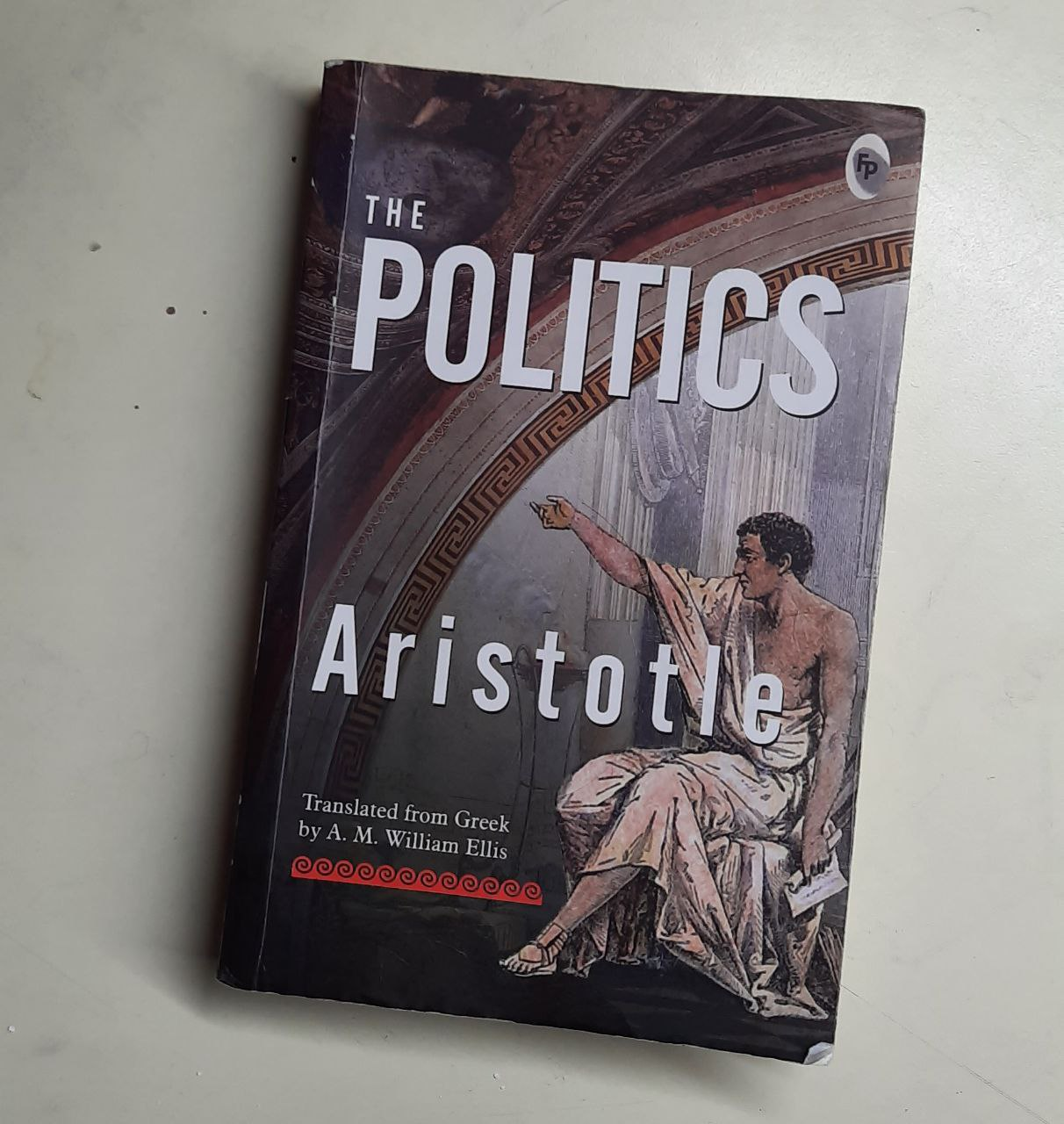Once I had finished reading The Republic by Plato, I developed an interest in the entire building a city thing. I picked up The Politics by Aristotle as my next read. It took me months to finish reading the Politics, reading and rereading the chapters and googling words throughout the book.
The Republic was a dialogue which was fun to get through, The Politics however, is a treatise, it is a really long essay (almost 300 pages) , and after reading it I sit face to face with my laptop to write this review while I am completely overwhelmed because, let’s face it , how am i supposed to review something like this? It's a classic and I doubt that I even understood it enough to review it in its entirety.
The Politics is divided into 8 books, which consist of multiple chapters each. Collectively they answer different questions such as: what is the best form of governance? Why have a government at all?
Aristotle proposes that all societies are established for a purpose, that is to lead a happy and fulfilled life.
He has proposed many interesting ideas in the book which have been groundbreaking in history of Political thought. I cannot talk about each one of them in a short blog post. However, some parts of the book really laid an impression on me.
One major part of the book talks about the different ways a city can be governed. He explains with examples of various ancient cities of Greece, analyzing and comparing their governments. He also criticizes Plato’s Republic. His criticism in this regard is that, Socrates when talking of the forms of governments such as oligarchies and democracies, does not consider the multiple forms these governments can themselves take.
Aristotle classifies broadly, the forms of governments in three sorts: the kingly, the aristocratic and the free state (the polity). These three forms of governments have their perverted forms that are: democracy from free state, tyrannical from kingly and oligarchical from the aristocracy.
Another very interesting question raised by Aristotle was : Where should the supreme power be placed in a government? Should the King have it or the people? He has argued that the Supreme power should be placed in the laws. He says: “he who would place the supreme power in mind would place it in God and the laws , but he who entrusts man with it gives it to a wild beast …”.
The best form of government according to Aristotle is the Polity, which is the government of freemen. It is the ideal form of democracy which does not govern only for the majority (or the leadership) but for all. He also believes in the strength of the middle-class population in a city and attaches virtue with mean.
My favorite concept of which this book talks about is of separation of powers and functions in the government. Chapter 14th of Book 4 goes into the details of it. According to Aristotle, the legislator should consider including three domains of governance in a state: firstly, the public assembly, secondly the officers of the state (magistrates) and thirdly, the judicial department. It is the proper business of the public assembly to enact the laws. Aristotle believed in the wisdom of the people.
This subject is of immense common relevance, and it was interesting to look at the modern Indian framework of separation of power after considering what was proposed centuries ago. I could only be awestruck by the modernity in Aristotle’s ideas (if we do not consider some of his weird and outrageous opinions such as the master and slaves thing that he has going on).
The Politics is interesting. Ancient, verbose and difficult to get through but completely worth it. I could talk about it all day and every day, but I’d like people to get into it for themselves.

I get it.. how it can be fiddly to review 2500 year old classics as whatever must be spoken about them has prolly been already said yet you did such a fascinating job! Young readers and reviewers like you make classics sound like fun. Thankyou for providing insight into your experience of this timeless, I had skimmed through it in my 1st year of college and found some analogies intriguing like the one of perfect nose. Looking forward to reading this one soon :)
ReplyDeletethankyouu wo much
Delete